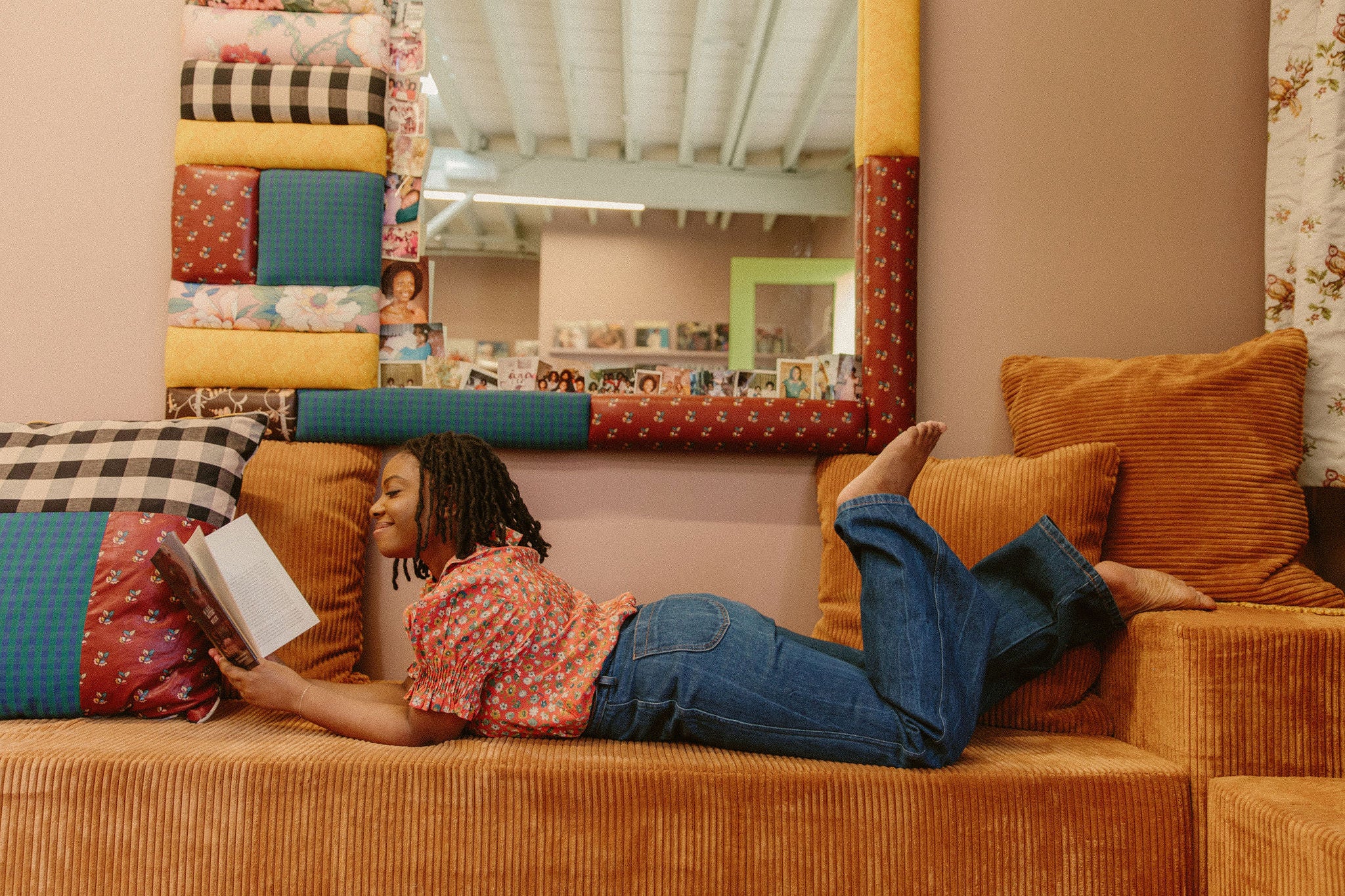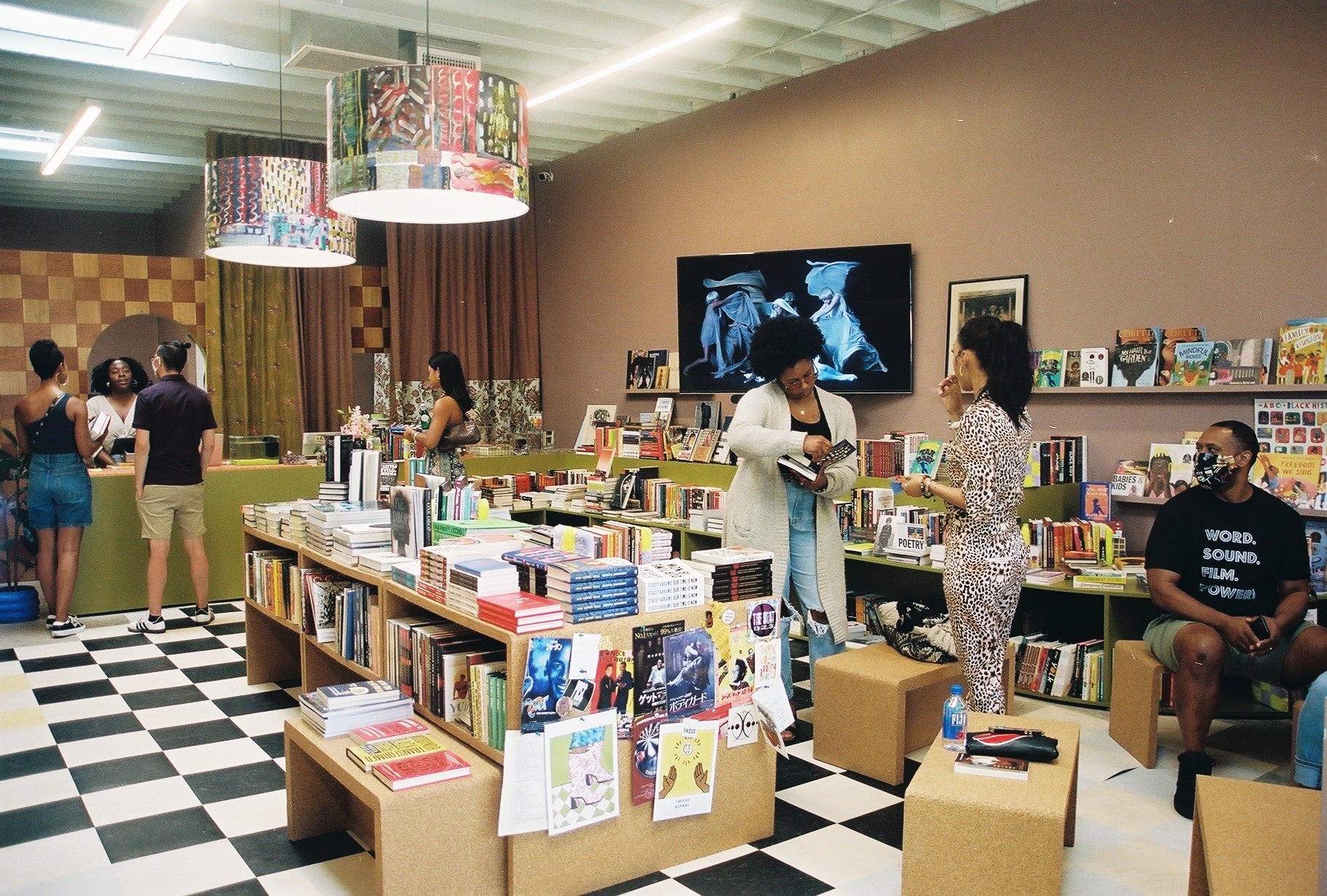Jazzi McGilbert didn’t exactly start out with a business plan, but rather a vision of a space for Black people in Los Angeles. She wanted to create a place where they could gather as a community, inspired by her own childhood in the city. “I was just a creative, bookish, introverted Black girl growing up and always needed spaces to just feel safe. And I lacked those,” Jazzi says. “So I went out and built one.”
With just $20,000, Jazzi started Reparations Club, a bookstore and community space. In just three years, the store has grown into a seven-figure business. Much of that growth has happened organically, driven by creativity, curation, and careful risk-taking.
Harnessing her creative side
Jazzi is an artist who works in multiple mediums. She was a fashion magazine editor and a creative director before starting Rep Club, and brought a similar artistic sensibility to designing the store. “I approach my business like an artist in that I am thinking about color and texture and how people are going to resonate with the work,” Jazzi says.
For Reparations Club, Jazzi wanted the store to have a 1970s-inspired aesthetic, similar to the décor of her childhood.

Curating with purpose
Reparations Club sells books and products from Black-owned brands. “I think every bookstore is ultimately, in some way, a reflection of its owner,” Jazzi says. She explains that her interests and identity, as well as the interests and identity of her staff, are reflected in the products on the shelves.

The ups and downs of entrepreneurship
When she started, Jazzi had a vision for Reparations Club and knew the community she was building it for, but she didn’t know how it would be received. When she did find her first retail space, she went in expecting the worst. “If nobody walks in this space and buys anything, how much do I stand to lose?” she asked herself.
When the building’s roof had a leak, Jazzi almost did lose it all, with water damaging almost all of the store’s inventory.
Jazzi kept going, though. The COVID-19 pandemic forced Reparations Club to shut down its brick-and-mortar location temporarily, but Reparations Club opened an online store and started making book deliveries around the city.
And Reparations Club was able to meet customers’ needs when people were looking for resources amid the Black Lives Matter protests in 2020. “This was the summer of anti-racist reading. People were really seeking out education that they were now realizing they lacked,” Jazzi says.
Growing through word-of-mouth marketing
Reparations Club hasn’t spent any money on advertising. Instead, the brand’s growth has been organic. “I just wanted to focus on people having such a good experience that they told somebody else about it,” Jazzi says. Creating that experience is sometimes as simple as recommending a book to a customer or helping an author celebrate their first release.
The indie bookstore business can be challenging at times, but Jazzi does see some hope in the amount of books that people are reading and how many films are based on books. “There is this return to reading that I’m deeply inspired by,” she says.
To learn more about Reparations Club and Jazzi’s journey to becoming a business owner, listen to the full interview on Shopify Masters.




